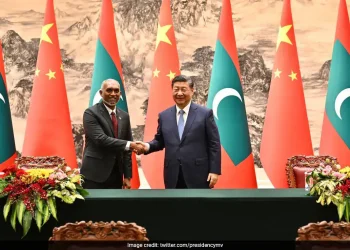A recent agreement between Ethiopia and Somaliland has ignited tensions in the already volatile Horn of Africa region, raising questions about statehood, access to the sea, and the potential for increased conflict.
On January 1st, Ethiopia and Somaliland, a self-declared independent state within Somalia, signed a memorandum of understanding (MoU) with potential repercussions across the continent.
The agreement grants Ethiopia a 50-year lease on a 20-kilometer stretch of Somaliland’s coastline near the strategic Gulf of Aden port of Berbera. In return, Ethiopia hinted at the possibility of formally recognizing Somaliland’s independence—a move no country has undertaken in the territory’s 30-year quest for statehood.
However, the deal has encountered immediate opposition from Somalia, which views it as an “act of aggression” and a violation of its territorial integrity.
Mogadishu, Somalia’s capital, insists that only they have the authority to negotiate such agreements. The potential recognition of Somaliland by Ethiopia is particularly alarming for Somalia, where concerns about separatist movements run deep.
The MoU, though not legally binding, has sent shockwaves through the region. The US, the African Union, and the east African IGAD bloc have all expressed concerns about the agreement’s potential to destabilize the already fragile Horn of Africa.
This region, bordering the vital Red Sea, serves as a crucial maritime corridor for nearly 15% of global seaborne trade, making it a strategic hotspot coveted by nations like Russia, Turkey, China, and Gulf states.
For Ethiopia, which has been landlocked since Eritrea’s independence in 1991, the Berbera port deal offers a potential lifeline. Access to the sea would not only boost its trade and development but also strengthen its geopolitical position against regional rivals like Egypt, with whom it shares a contested dam project on the Blue Nile.
Somaliland, meanwhile, sees the agreement as a boost to its international recognition campaign. Having established relative stability and its own functioning government, Somaliland has long sought formal recognition as a separate nation.
The Ethiopian MoU, even without guaranteed recognition, puts the issue back on the international agenda.
However, the deal comes with risks for both parties. Somalia’s ongoing fight against the al-Shabaab insurgency means it cannot afford renewed hostilities.
While experts believe war is unlikely, the potential for increased tensions remains high. Within Somaliland itself, the agreement has faced internal opposition, with the defense minister even resigning in protest.
Additionally, Ethiopia will likely need significant funding to develop the necessary infrastructure, including a new port and navy facilities.
This funding could potentially come from the United Arab Emirates, which has been expanding its influence in the Horn of Africa and enjoys close ties with both Ethiopia and Somalia.
Ultimately, the Ethiopian-Somaliland agreement has exposed the complex web of interests and political realities in the Horn of Africa.
While the deal’s long-term consequences are uncertain, it has undoubtedly opened a new chapter in the region’s ongoing struggle for stability, recognition, and access to the vital Red Sea trade corridor.
The coming months will reveal whether cooperation or conflict prevails in these delicate geopolitics.









